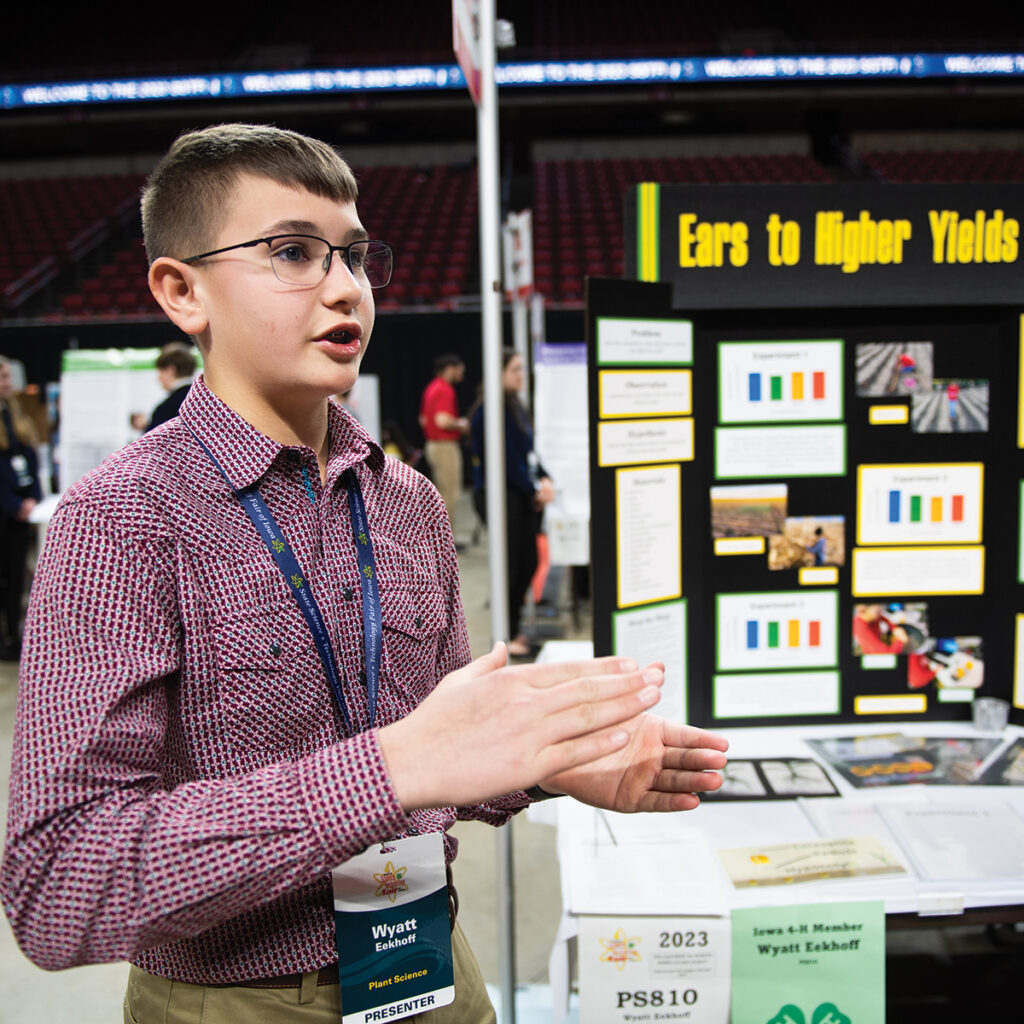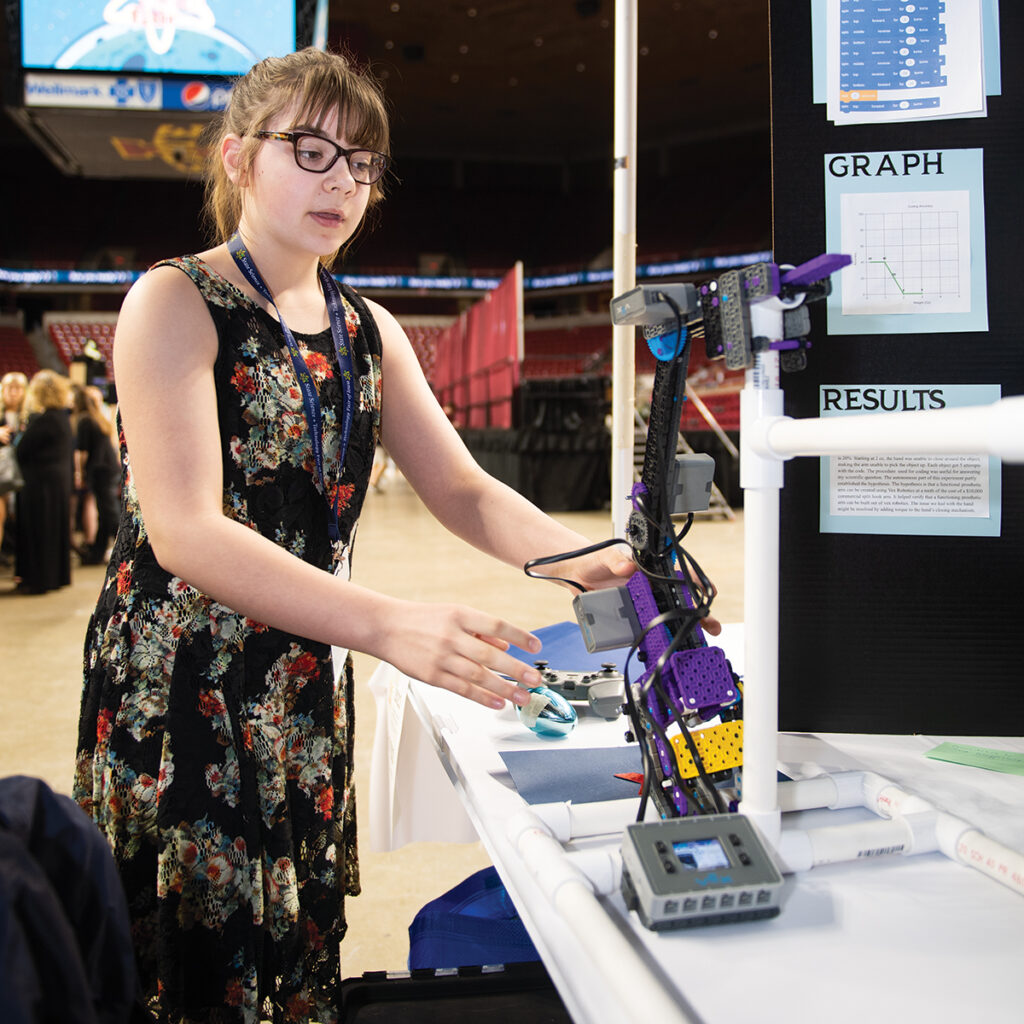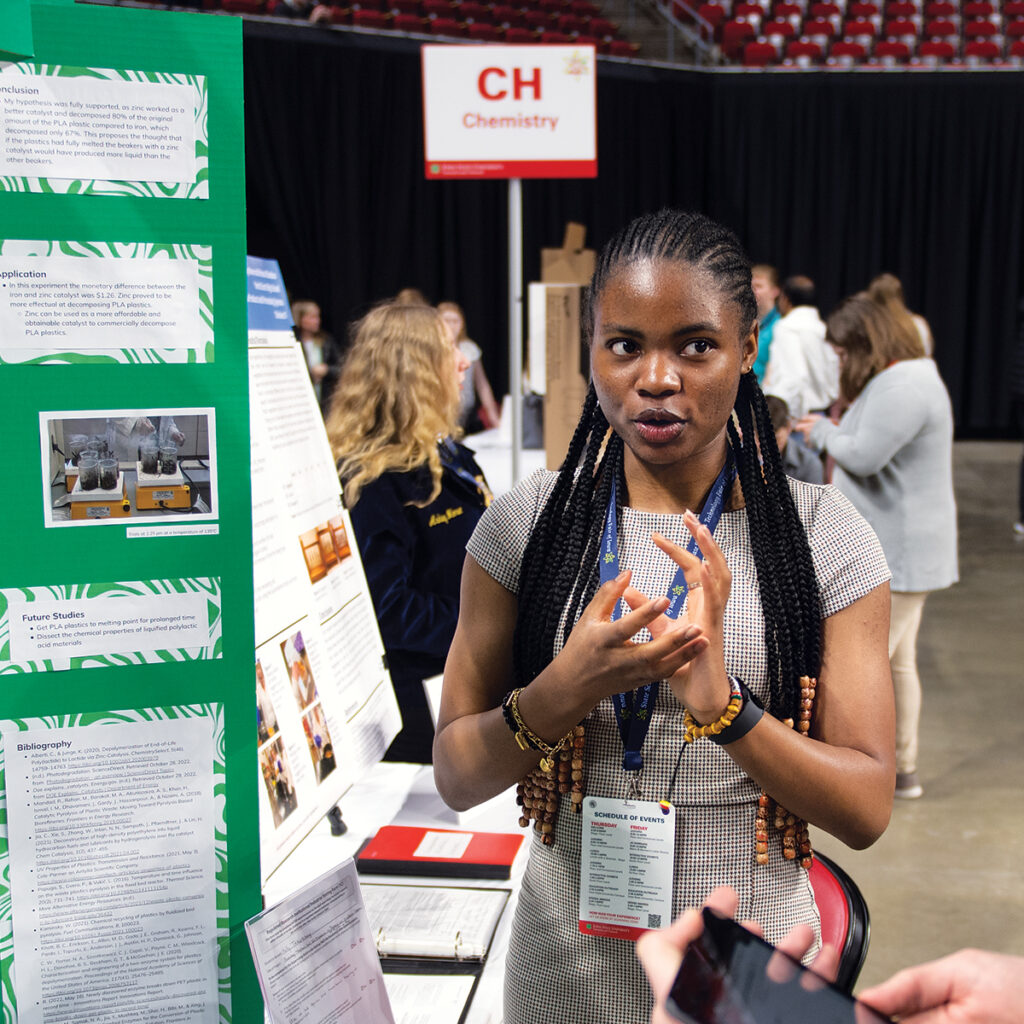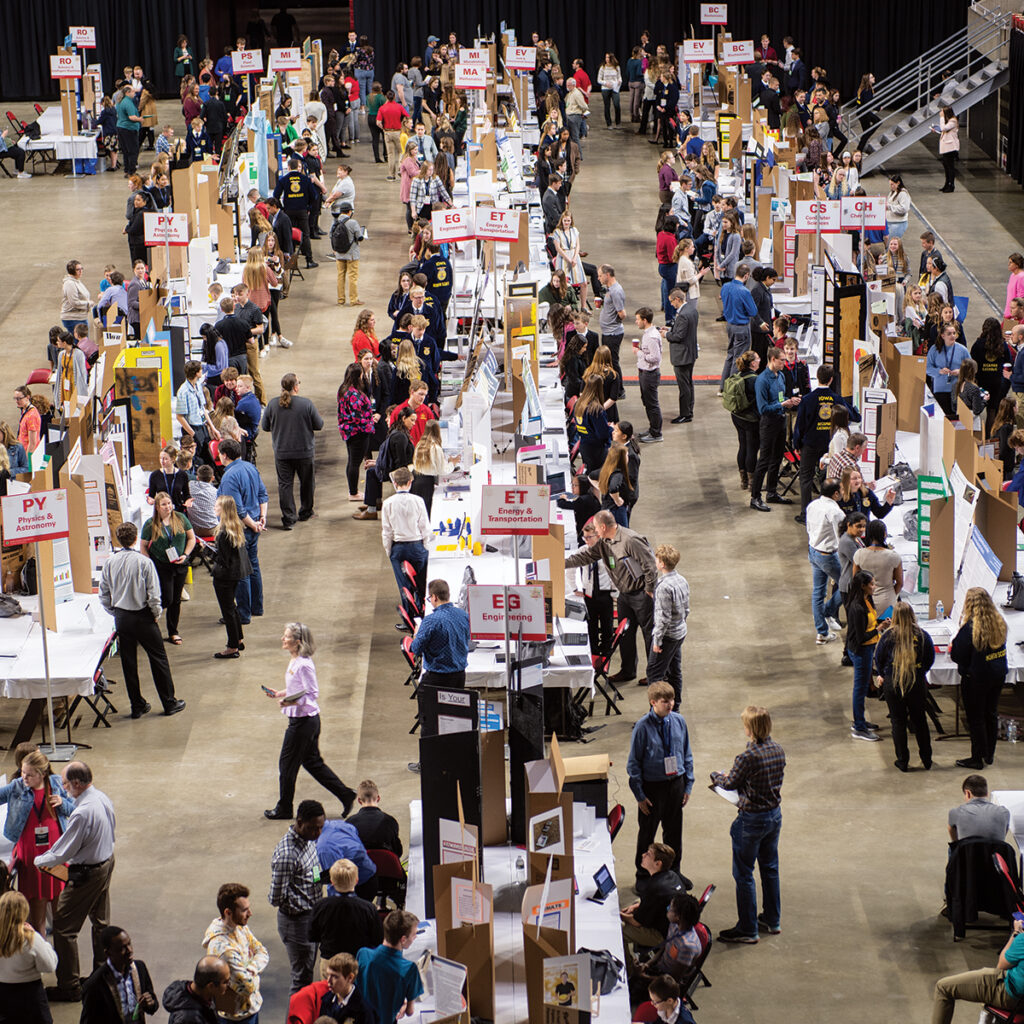Iowa’s only statewide science fair spurs student curiosity, ingenuity
Most people can picture a science fair — trifold poster boards, project demonstrations and judges making their rounds.
For almost 70 years, Iowa’s only statewide science fair, the State Science and Technology Fair of Iowa, has welcomed future scientists, inventors and curious minds alike.
Claison Groff started the fair in 1957 and directed it for decades. Today, his granddaughter is in charge.
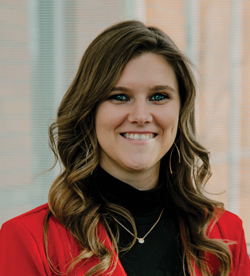
Alexa Groff, STEM coordinator and the science fair’s director for Iowa 4-H Youth Development, said with a family of science teachers, she was “born into the science fair world,” leading to her own career in the field and a passion for STEM research.
Students often start their projects for a class or club at their school, but it is free for any middle or high school student to participate in Iowa’s regional and statewide fairs. Finalists go on to compete at the International Science Fair and various awards are given out, including scholarships and internships with local businesses.
But there is more for students to gain from participating beyond awards.
“My big thing when I would talk to kids about it is … you’re not going to a science fair to win or lose,” Groff said. “That should not be in your head as your ultimate goal. … The biggest thing that I push is the connections, the people that you meet.”
Groff said participation in the fair dropped during the pandemic but has rebounded. Her 10-year goal is to have every school district in Iowa bringing students to the two-day event held each spring.
Ultimately, the fair is about stoking students’ curiosity and providing them a chance to develop critical thinking skills.
Wyatt Eekhoff, an eighth grader at West Hancock Middle School in Britt, was inspired by his family’s farm. He researched whether the direction a corn seed is pointing when planted affects yields.
“We would go out and look at the cornfield and there would be just plants that had completely different yields,” Eekhoff said. “I wanted to know why, but my dad always talked about an old wives’ tale that if the seed is pointed up, it would have a higher yield and I wanted to see if it was true or not.”
His research found that pointing the seeds down when planting allows them to germinate correctly and farmers could save close to $200 per acre with this method.
Olivia Kloppenborg, a seventh grader at West Marshall Middle School in State Center, said she aspires to work in the medical technology field engineering robotic limbs. Her dad served in the Iraq war, sparking her interest in developing prosthetics that can help service members and others who have lost limbs.
She built a robotic arm prototype based on her research on how to make prosthetic limbs more cost-effective and automated so they provide at least some of the function that was lost.
“I really want to help people that have been through very traumatic things because you can’t control those things and you should be able to have everything everybody else has because it’s not your fault if that stuff happens to you.”
Here are some sights and highlights from this year’s science fair at Hilton Coliseum in Ames.
Wyatt Eekhoff, an eighth grader at West Hancock Middle School, explains his research project, which studied whether the direction a corn seed is pointed when planted affects the plant’s yield. Eekhoff’s project was awarded first place for the eighth grade division. He said his research and participation in the science fair have made him think about a future career in agriculture.
Olivia Kloppenborg, a seventh grader at West Marshall Middle School, shows the robotic prosthetic arm she built out of VEX Robotics pieces as part of her research into how to make prosthetic limbs more cost-effective and more useful to the user. She got the idea because of a VEX Robotics program at her school, which allows students to build robotics competitively. Her project received several awards at this year’s state science fair, including the CSTA Iowa Computer Science Award and a Naval Research Award from the U.S. Navy.
Kelly Takorbisong, a 10th grade student from Keokuk Community School District, tells a judge about her project, “Depolymerization of PLA Plastics: A Novel Investigation of the Effect of Iron and Zinc on Biodegradable Compounds.” She was awarded second place in the high school chemistry division.
Hilton Coliseum has hosted the State Science and Technology Fair of Iowa for at least the last 20 years, Alexa Groff said. The 2023 fair participants included 452 sixth through 12th grade students. This year’s grand champion was Shanza Sami of Iowa City West High School for her project researching how to purify gasses and pollutants from gas-powered cars.
PHOTOS BY DUANE TINKEY
